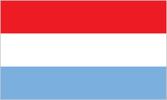Compare
Falkland Islands
to
Luxembourgto
LuxembourgLuxembourg has an unemployment rate of 7.10% while Falkland Islands has 4.10%
This entry contains the percent of the labor force that is without jobs.
Source:
CIA World Factbook
The GDP per capita in Luxembourg is $77,900 while in Falkland Islands it is $55,400
This entry shows GDP on a purchasing power parity basis divided by population as of 1 July for the same year. A nation's GDP at purchasing power parity (PPP) exchange rates is the sum value of all goods and services produced in the country valued at prices prevailing in the United States. This is the measure most economists prefer when looking at per-capita welfare and when comparing living conditions or use of resources across countries. The measure is difficult to compute, as a US dollar value has to be assigned to all goods and services in the country regardless of whether these goods and services have a direct equivalent in the United States (for example, the value of an ox-cart or non-US military equipment); as a result, PPP estimates for some countries are based on a small and sometimes different set of goods and services. In addition, many countries do not formally participate in the World Bank's PPP project that calculates these measures, so the resulting GDP estimates for these countries may lack precision. For many developing countries, PPP-based GDP measures are multiples of the official exchange rate (OER) measure. The differences between the OER- and PPP-denominated GDP values for most of the wealthy industrialized countries are generally much smaller.
Source:
CIA World Factbook
The per capita consumption of electricity in Falkland Islands is 6,221kWh while in Luxembourg it is 12,378kWh
This entry consists of total electricity generated annually plus imports and minus exports, expressed in kilowatt-hours. The discrepancy between the amount of electricity generated and/or imported and the amount consumed and/or exported is accounted for as loss in transmission and distribution.
Source:
CIA World Factbook
Falkland Islands consumes 4.4352 gallons of oil per day per capita while Luxembourg consumes 4.9518
This entry is the total oil consumed in gallons per day (gal/day) divided by the population. The discrepancy between the amount of oil produced and/or imported and the amount consumed and/or exported is due to the omission of stock changes, refinery gains, and other complicating factors.
Source:
CIA World Factbook
 With its 520,672 people, Luxembourg is the
171st largest country in the world by
population. It is the 174th largest country in the
world by area with 2,586 square kilometers.
With its 520,672 people, Luxembourg is the
171st largest country in the world by
population. It is the 174th largest country in the
world by area with 2,586 square kilometers.
Founded in 963, Luxembourg became a grand duchy in 1815 and an independent state under the Netherlands. It lost more than half of its territory to Belgium in 1839 but gained a larger measure of autonomy. Full independence was attained in 1867. Overrun by Germany in both world wars, it ended its neutrality in 1948 when it entered into the Benelux Customs Union and when it joined NATO the following year. In 1957, Luxembourg became one of the six founding countries of the European Economic Community (later the European Union), and in 1999 it joined the euro currency area. In January 2013, Luxembourg assumed a nonpermanent seat on the UN Security Council for the 2013-14 term.
Check out the recommended reading list below for great sources of information on Luxembourg